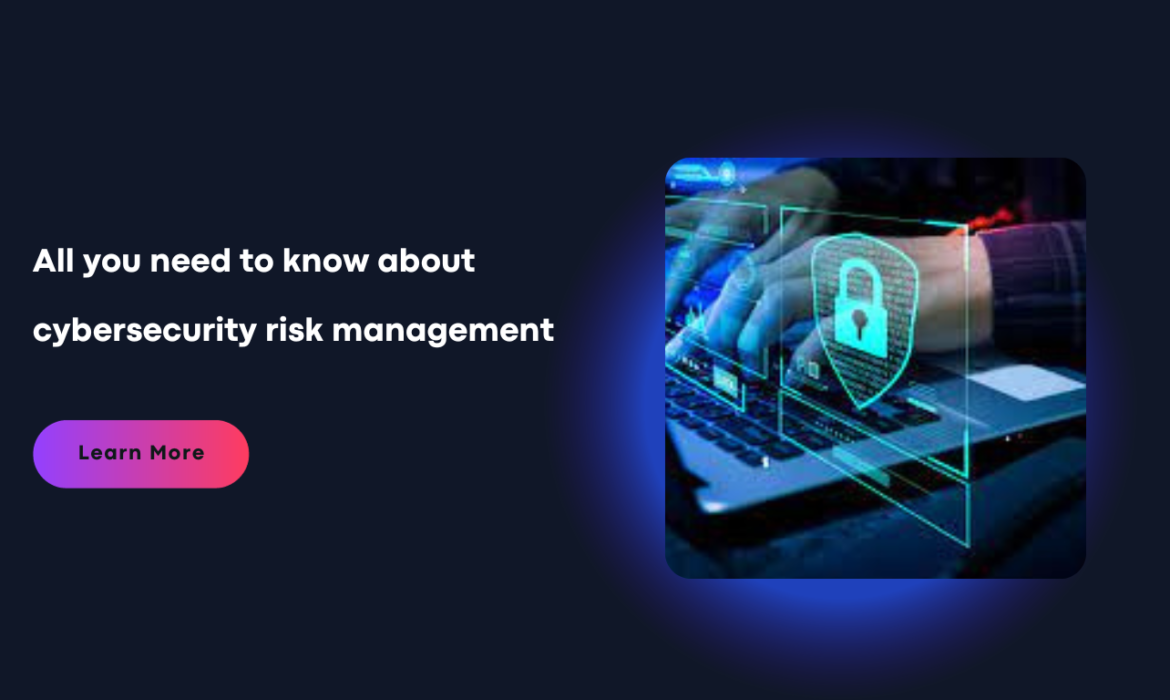All you need to know about cybersecurity risk management
In an age where the digital landscape is continuously expanding, so are the risks associated with it. Cyber threats have become more sophisticated and prevalent, posing substantial challenges to individuals and organizations alike. That’s where cybersecurity risk management comes into play. In this SEO-friendly blog post, we’ll delve into the world of cybersecurity risk management, why it’s essential, and how you can effectively navigate these digital waters to protect your assets.
Essence of Cybersecurity Risk Management
What is Risk Management?
It is the process of identifying, assessing, mitigating, and monitoring security risks in the digital realm. It involves a structured approach to safeguarding digital assets and sensitive information while ensuring the continuity of business operations.
Pervasive Cyber Threat Landscape
The digital world is fraught with threats, including data breaches, ransomware attacks, phishing scams, and more. The frequency and sophistication of these threats emphasize the critical need for cybersecurity risk management.
Why Cybersecurity Risk Management Matters
Protecting Valuable Assets
In today’s interconnected world, data is a valuable asset. It helps protect sensitive information, intellectual property, financial records, and customer data from falling into the wrong hands.
Regulatory Compliance
Numerous industries are subject to stringent data protection regulations. Effective risk management ensures that businesses comply with these regulations, avoiding legal repercussions and preserving their reputation.
Business Continuity
A successful cyberattack can disrupt business operations, causing downtime and financial losses. Effective risk management minimizes the risk of such disruptions, ensuring business continuity.
Benefits of Cybersecurity Risk Management
Threat Awareness
Cybersecurity risk management enhances an organization’s awareness of potential threats. This proactive approach allows for the timely identification and mitigation of risks.
Cost Savings
Investing in cybersecurity risk management can save a business significant costs associated with data breaches, legal fees, and downtime.
Reputation Protection
A strong cybersecurity posture enhances an organization’s reputation. Clients and customers are more likely to trust businesses that prioritize data security.
The Process of Cybersecurity Risk Management
Identification
The first step is risk management is identifying potential threats and vulnerabilities. This involves assessing the organization’s digital assets, network infrastructure, and existing security measures.
Assessment
Once threats are identified, they are assessed for their potential impact and likelihood of occurrence. This step prioritizes risks based on their severity.
Mitigation
After assessing risks, the organization implements measures to mitigate them. This may include installing firewalls, antivirus software, encryption, and employee training programs.
Monitoring and Response
It is an ongoing process. Organizations continuously monitor for threats and incidents, responding promptly when security breaches occur.
Finding the Right Cybersecurity Risk Management Partner
Expertise and Experience
Selecting the right risk management partner is crucial. Look for firms or professionals with expertise in the field, including certifications like CISSP (Certified Information Systems Security Professional) and CISM (Certified Information Security Manager).
Reputation and References
Research a potential partner’s reputation and ask for references. A reliable partner should have a history of successful engagements and satisfied clients.
Customized Solutions
Each organization is unique, and its cybersecurity needs vary. Ensure that your chosen partner offers customized solutions tailored to your specific risk profile.
Real-World Applications
Green Edge Computers
Green Edge Computers , a global financial institution, recognized the need for robust cybersecurity risk management after a near-miss data breach. They partnered with a cybersecurity firm to assess their vulnerabilities, implement stringent security measures, and establish an incident response plan.
Results
Thanks to their proactive approach to cybersecurity risk management, ABC Corporation successfully thwarted several attempted cyberattacks. They experienced minimal downtime and preserved their reputation, demonstrating the tangible benefits of effective risk management.
Conclusion
In today’s interconnected digital world, cybersecurity risk management is not an option; it’s a necessity. The risks are ever-present and ever-evolving, making it essential for individuals and organizations to navigate these waters wisely.
By understanding the fundamentals of risk management, the benefits it offers, and the importance of finding the right partner, you can safeguard your digital assets and thrive in the face of digital threats. Don’t wait for a cybersecurity incident to strike; invest in risk management today to fortify your digital defenses and secure your digital future.



